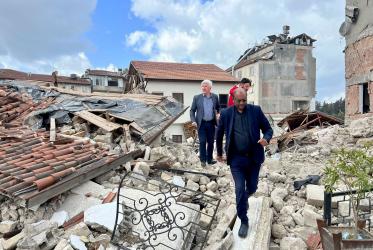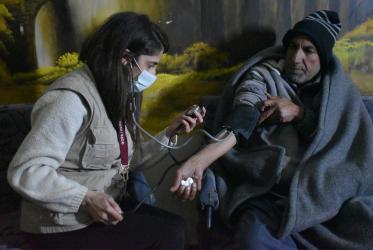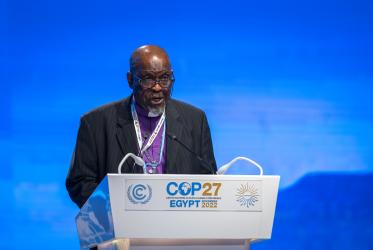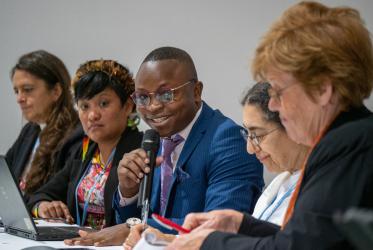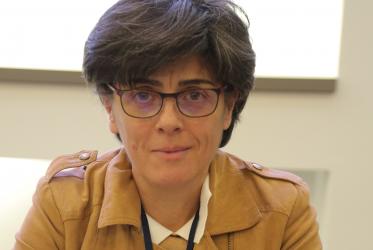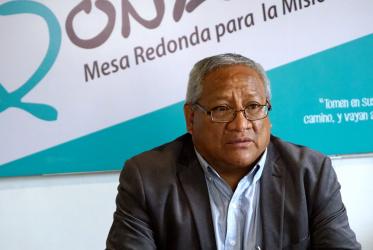Displaying 1 - 20 of 37
COP side event explores how to deliver on the promise of adaptation
16 November 2022
Migrants in Argentina find listening ears and open hearts
04 November 2022
WCC stands in solidarity with victims of major flood in Brazil
17 February 2022
In Lebanon, “without peace there is no justice”
21 July 2021
Hope prevails in times of crisis in Lebanon
14 September 2020
New student body at Bossey Ecumenical Institute “a source of joy”
14 September 2020
Dr Saïd Ailabouni: God is on the side of rejected, oppressed, occupied
12 September 2019

